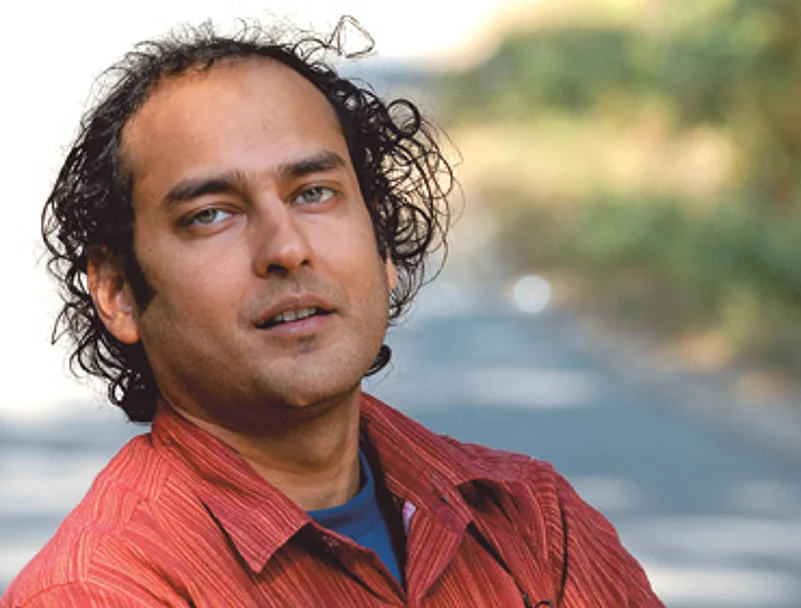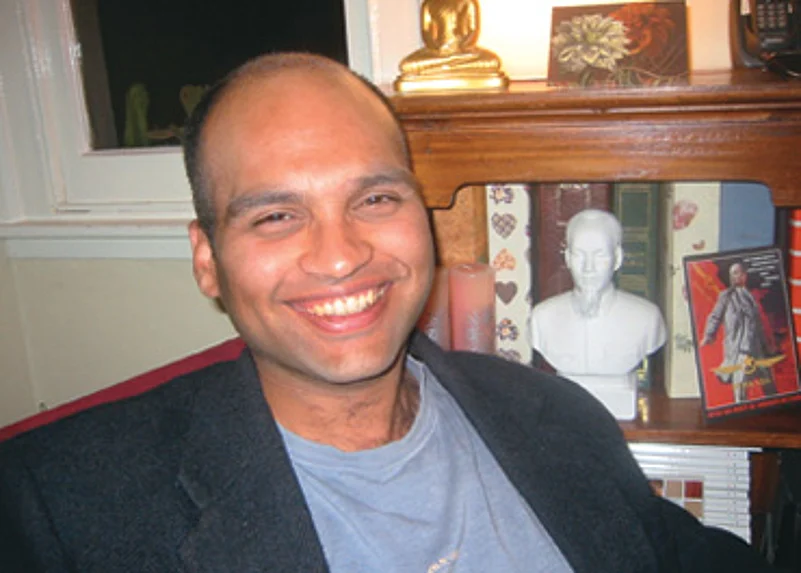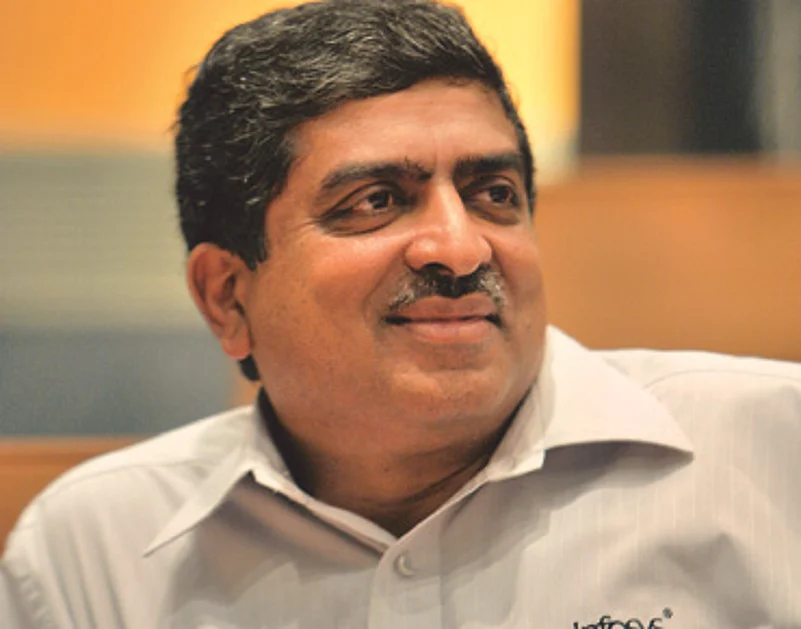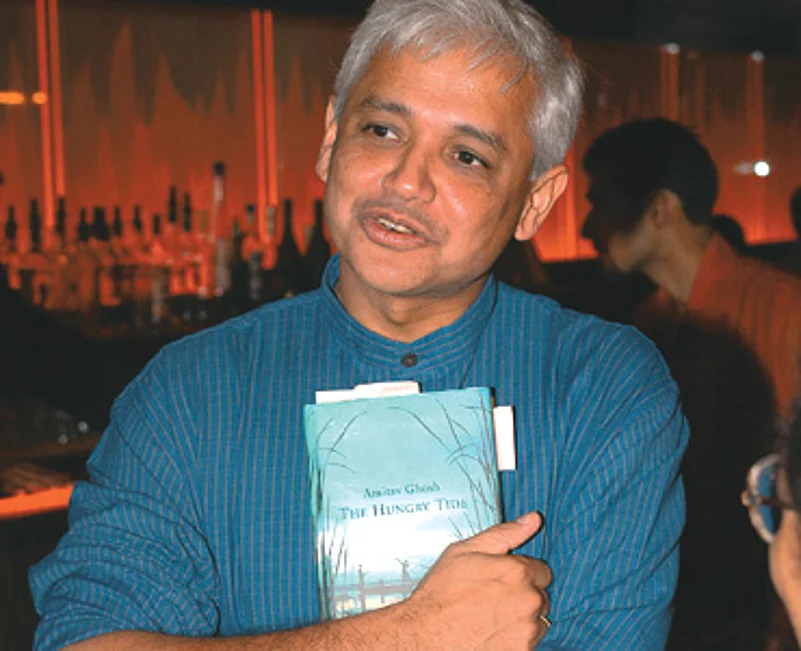Something funny is going on in the famously tight-fisted circle of Indian publishers. For the past few months, they have been punting dizzily on manuscripts by untried Indian authors, coughing up millions of rupees in advance royalties. The buzz about the boom in Indian advances has spread so fast that publishers and literary agents heading West with Indian manuscripts are swerving right back home, demanding five and six-figure dollar advances that rival those in the UK or Europe.
***

Palash Mehrotra | The Butterfly Generation
Advance received: Rs 8 lakh
Non-fiction: Part memoir, part travelogue, the book is about two Indias and the urban young today
***
Take Palash Mehrotra, for instance. The 32-year-old former schoolmaster wanted to write a book, so he did what young and broke authors around the world do these days: he googled for a literary agency and sent them his book proposal. Mehrotra's literary agency in the UK, A.P. Watt, bounced it right back to India, getting three publishers—Rupa, Penguin and HarperCollins—into a fierce bidding war lasting several days. Rupa, an old family-owned distribution company with a brash new publishing face, finally bagged Mehrotra's as-yet-unwritten book on a generation straddling two worlds: socialist India and global India. The Butterfly Generation: A Personal Journey Into the Passions and Follies of India's Technicolor Youth got the author an incredible Indian advance of 10,000 pounds (around Rs 8 lakh), enabling him to give up his job as a schoolteacher and start writing his ambitious book. What's more, the excitement the book proposal generated in India helped Mehrotra's agent sell the book in the UK, to Portobello.
With six or seven big publishers here all fishing in the one small pond of Indians writing in English, book auctions are now very much a part of the publishing trade here. Till a year ago, publishers in Delhi usually waited for their annual forays to the Frankfurt or London book fairs, hoping to catch the eye of a literary agent or publisher who would be generous—or stupid—enough to part with Indian rights for next to nothing. As beggars, they didn't count for much. "They wouldn't even give us the time of day when we approached them," recalls a publisher in Delhi ruefully. But now, it's their day in the sun. "All of us get at least four or five queries a month from agents and publishers abroad who think a manuscript might be of interest to Indian readers. Of these, at least two turn into full-scale auctions," she says.
***

Aravind Adiga | The White Tiger
Advance received: Rs 14 lakh
Fiction: A slim novel about India’s globalisation in the form of a letter from a village-born driver to China’s premier
***
So what has changed? For one, attitude. Tired of being treated like poor country cousins, Indian publishers are now throwing dollars in a bid to grab the attention of literary agents and to be taken seriously by the world's publishing community. Last April, for example, when Aravind Adiga's The White Tiger was being auctioned at the London Book Fair, several Indian publishers and scouts hovered around in the hope of grabbing Indian rights for a bargain. But Adiga's literary agent, Cathryn Summerhayes (from William Morris Agency) wouldn't bite. "We decided not to take any early pre-emptive offers because we knew The White Tiger could potentially become a huge book in India," she says. The book has all the ingredients for a blockbuster: a slim fictional tale, in the form of a letter written by a village-born driver to the Chinese premier, giving his version of India's global economic boom. Just how huge the interest was, Summerhayes only figured out after she put the book to auction in Delhi. "Six publishers received the manuscript and five came in with offers almost immediately." Over the next few days, the bids kept rising, crossing the Indian advances paid to established literary stars like Vikram Seth and Vikram Chandra. With the time difference between India and the UK adding a further edge to the excitement, the punting fever raged. Until finally, Penguin reluctantly pulled out, leaving HarperCollins with the prize: a manuscript by an untried Indian sold for a record sum ranging around 35,000 dollars (Rs 14 lakh approximately).
Punting on manuscripts can be very addictive, as Indian publishers ruefully admit. "At that moment, you want the book, no matter what the cost," says HarperCollin's V.K. Karthika. "It's only later, after the excitement dies down, that you do your calculations and wonder how you'll recover the advance." But winning The White Tiger is not a decision she regrets, even if it means selling 40,000 copies of it in hardback—not altogether impossible, as recent successes have proved. "The White Tiger has great commercial potential, a novel that can speak to anyone, anywhere. And don't forget, it includes paperback sales as well. We'll recover our money, even if it takes two years."
***

Tarun Tejpal | The Story Of My Assassins
Advance received: Rs 22 lakh
Fiction: About a journalist who attracts the ire of the government on account of his outspoken politics
***
It's this new confidence, born of the economic boom in India, that foreign literary agents and publishers like Marc Parent are tapping into. "I had several Indian publishers approaching me with pre-emptive bids for Tarun Tejpal's second novel, The Story of My Assassins, in Frankfurt." Despite his first book—The Alchemy of Desire—bombing in the UK, and doing only moderately well in the Indian market, there was huge interest among Indian publishers for Tejpal's next book. But Parent was quick to recognise the changing climate in the Indian books business. "I told them I preferred to auction it. That way everybody gets to read it and make offers for it." It was a wise decision, as it turned out. Five publishers jumped into the bidding war. A couple of them were in it just for the fun of it—"to make their presence felt," as a publisher new to auctions put it. But the Big Three—Penguin, and its two challengers for top publishing slot, Rupa and HarperCollins—were determined to outbid their rivals. The auction went into three rounds. The winner: HarperCollins, again. The winning bid was around Rs 22 lakh. Interestingly, the Indian advance Tejpal got for The Story of My Assassins is higher than what he got in Italy, known for its aggressive buying power.
The fact that Parent could take an author like Tejpal, who has so far received no comparable offer for his second book in the UK, and nonetheless get him a superstar's advance in his own country, speaks volumes for where the books industry here is heading. "There's a new maturity here now, a new relationship with its own culture and much more confidence. Publishers here are no longer looking for validation from the West before deciding whether they want to buy the book or not," points out Parent.
It's a myth, according to him, that books can't sell in the volumes required to recover high advances. "You have a middle class of 300 million who are bound to partake of the reading energy. Besides, there is a new generation making up its own mind about what they consider literary fiction. Even if some novels fail, the demand for them will only grow, not lessen." What publishers now need to do is to "bet on new markets", he says. "And increase distribution in the smaller cities and towns."
***

Dev Anand | Romancing With Life
Advance received: Rs 15 lakh
Memoir: Kiss-and-tell story of Dev Anand’s many loves
***
It took Penguin just four months, for instance, to almost recover the high advance they paid to Dev Anand for his autobiography, Romancing With Life, by using high jacket price (Rs 695) and innovative marketing (a free CD with the book). When the shrewd author realised there was more interest in the market for his story than he'd anticipated, he hired his own lawyer to conduct an informal auction. Penguin, which was hoping to walk away with the manuscript because they'd commissioned it, ended up paying the film star a whopping Rs 15 lakh advance, a sum publishers even now swear would mean certain self-destruction. On the contrary, with the hardback edition still selling briskly, and paperback sales to follow, Romancing With Life will no doubt recover not only the advance royalties, but make a tidy profit for the publishing house as well.
Advances are certainly going up, admits Penguin's David Davidar, who remembers when Penguin India started out by paying advances of Rs 5,000 to authors. "It's a gamble," he admits, "and a publisher has to take a calculated risk by picking the books he wants to gamble with." High advances, according to Davidar, "don't produce better writers. But the inverse is true: if the environment is more welcoming to writers, many more may take the plunge."
***

Nandan Nilekani | Imagining India
Advance received: Rs 14 lakh
Non-fiction: A blueprint for India pinpointing the ideas that have shaped us over the last 60 years
***
A case in point is Infosys co-chairman Nandan Nilekani. "The idea for my book, Imagining India, evolved as I went around the world and answered innumerable questions on the conundrums in India," recalls Nandan. But he may perhaps never have actually sat down to write it if he hadn't met the legendary literary agent Andrew Wylie. Wylie the Jackal, as he's called in the trade, didn't earn his title for nothing: he not only persuaded Nilekani to write a book proposal but sold it back to an Indian publisher for a sum that's whispered to be around 35,000 dollars (Rs 14 lakh). And if Wylie had chosen the auction route, who knows—the price may have jumped over the moon, as it did in the case of Amitav Ghosh's new trilogy. But luckily for Penguin, Davidar snapped up Nilekani for the asking price, long before any whiff of the new book on the block got around the small trade circle here. The advance may be peanuts compared to Nilekani's actual worth, but the IT superman is impressed with the boom in the books industry here. "I think the book market in India has really grown where the publishers can invest in larger advances," he says.
***

Amitav Ghosh | Sea Of Poppies Trilogy
Advance received: Rs 44 lakh
Fiction: An epic trilogy combining the drama of individual lives with history’s big themes
***
The auction for Amitav Ghosh's new trilogy is something that publishers here won't forget in a hurry. Ghosh's agent, Barney Karpfinger, asked the six major rival houses here to not only read the manuscript of the first in the trilogy, Sea of Poppies, but demanded a presentation from each of them: on editing, marketing and positioning on their lists. After that, the bids. It was perhaps the most fiercely fought bidding war on Indian soil for an Indian book, soaring to new and unprecedented heights. It closed—or rather, was brought artificially to a close—somewhere in the region of 1,10,000 dollars (Rs 44 lakh). For the first time, the winning bid was slightly lower than the losing one. After a point, as the winning publisher, Ravi Singh of Penguin, puts it, "It's not only about money, but what you bring to the table in terms of editing and marketing."
***

Tony D’Souza | The Konkans
Advance received: Rs 3-4 lakh
Fiction: A romantic comedy and family saga incorporating Konkan history and moving ahead to their life in the US
***

Shrabani Basu | Victoria & Abdul
Advance received: Rs 6.3 lakh
Non-fiction: the story of Queen Victoria’s close relationship with her Indian servant, Abdul Kareem
***
Till last year, as Karthika says, "If an Indian publisher wanted a book by an Indian, the agent would say, "You want it, take it." Now, they say, "You want it, wait, let's see who else wants it." For foreign agents and publishers, this is a heady feeling, especially after the big slump they're facing in their own markets trying to sell Indian writers in the UK. When literary agent Ilona Chavasse (from Grove Atlantic) sensed a sale in India, she sent a manuscript by a young Indian origin author called Tony D'Souza to the four or five publishers she'd heard of in India. The response was overwhelming: all of them began to bid for it. The novel, The Konkans, finally went to Rupa for somewhere in the range of 4,000-5,000 pounds (Rs 3 to 4 lakh).It was higher than what D'Souza got from his UK publisher. Similarly, Shrabani Basu's as-yet-unwritten book, Victoria & Abdul: The True Story of the Queen's Closest Confidante fetched 16,000 dollars (Rs 6.3 lakh) from Rupa, in no way comparable to the paltry sum she received from Roli only a year before for her earlier book, Spy Princess.
The trend of high advances could go two ways, according to publishers: some of them may get wiped out by doling out unrealistically large advances. Or it may galvanise the way books are sold, since it's now the publisher's neck on the line. Either way, watch out for the books boom to come.























